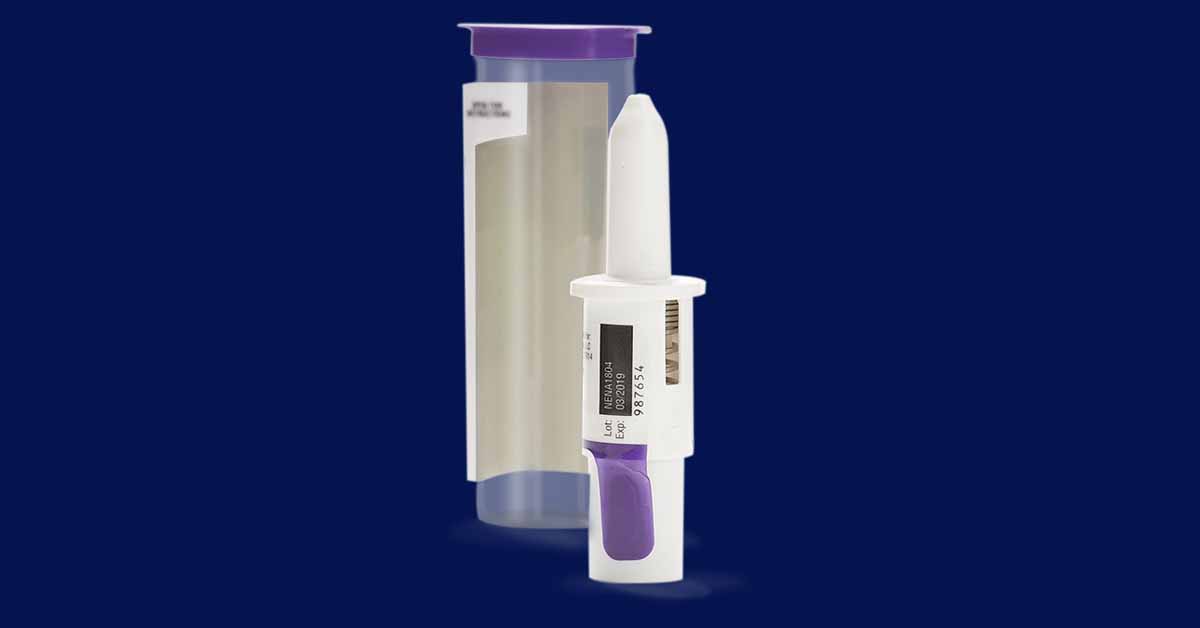Bryn Pharma, a privately held company located in North Carolina, recently announced the publication of the first study demonstrating the rapid and sustained absorption of their NDS1C epinephrine nasal spray. The study compared this novel method of administering emergency epinephrine to today’s standards: auto-injectors and intramuscular injections.
Published in the Journal of Allergy and Clinical Immunology, the study showed that NDS1C provides comparable rates of absorption, with overall higher and more sustained epinephrine plasma concentrations, compared to two intramuscular (IM) treatments (0.3 mg epinephrine autoinjector and 0.5 mg manual syringe).
The data support the ability of NDS1C to achieve a rate of absorption comparable to the 0.3 mg IM autoinjector, with a higher therapeutic level of epinephrine (i.e., >100 pg/mL) for essentially twice as long and with a similar safety profile.
Said Matt Greenhawt, M.D., Professor of Pediatrics, Allergy and Immunology at Children’s Hospital Colorado and the University of Colorado School of Medicine:
The results of this study are highly encouraging as an important alternative to the autoinjector in the real world outpatient setting remains a significant unmet medical need. Recent treatment guideline updates discuss the potential need for alternative, safe, and effective epinephrine delivery devices to alleviate their symptoms quickly and efficiently. Currently, challenges with needle-phobia, which can delay treatment and exacerbate symptoms requiring a second dose, and reluctance to carry a potentially bulky device with them, remain a key challenge in effectively managing anaphylaxis for patients and their families.
The study showed that NDS1C was safe and generally well-tolerated with no new safety signals observed for the intranasal route of administration. Similar blood pressure and heart rate effects were observed for intranasal and autoinjector administration. The most common adverse effects were headache and mild vomiting.
Said Sandy Loreaux, CEO of Bryn Pharma:
The publication of our pivotal NDS1C data in JACI Global further validates our ambition to develop an epinephrine product that is comparable to the outpatient standard of care, the EpiPen® autoinjector. We are pleased that the published results from our clinical development program are able to provide that peace of mind to the anaphylaxis community, in addition to supporting the potential of a needle-free, small, easy-to-use and affordable option. We are confident that, if approved, NDS1C will offer a novel, practical and convenient alternative to needle-based administration routes to help overcome some of the persisting barriers that cause patients and caregivers experiencing an anaphylactic attack to delay or avoid treatment.





